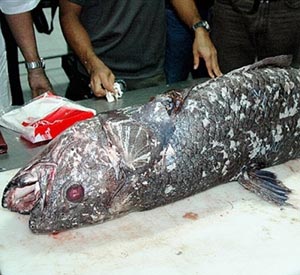First "living fossil" born on New Zealand mainland in 200 years
 Wellington - The first tuatara reptile, a living fossil descendant of the dinosaurs, was born on mainland New Zealand after 200 years, it was reported on Friday.
Wellington - The first tuatara reptile, a living fossil descendant of the dinosaurs, was born on mainland New Zealand after 200 years, it was reported on Friday.
The eight-centimetre-long baby was discovered at the Karori Wildlife Sanctuary in suburban Wellington on Thursday, captured for a historic photo opportunity and then released back into the bush.
As precious as he is, he will have to survive in the wild, consistent with the policy of the 225-hectare sanctuary, which allows its animals and birds to live in a natural environment, safe only from suburban cats and rats through an 8.6-kilometre long predator- proof fence.
"Like all the wildlife living here, he'll just have to take his chances," sanctuary conservation scientist Raewyn Empson told the Dominion Post newspaper.
She said that not only would he have to run the gauntlet of cannibalistic adult tuatara, he would "make a tasty snack" for kingfishers and native birds like moreporks and wekas that live in the sanctuary.
Empson said the birth of the baby, hatched from the first nest of ping pong ball-sized white eggs found in the sanctuary in November, and thought to be about a month old, was a massive breakthrough for conservation in New Zealand.
"It means we have successfully re-established a breeding population on the mainland," she said.
Tuatara (Sphenodon punctatus), which are unique to New Zealand, are the only survivors of the dinosaur-like reptile species Rhynchocephalia that became extinct about 60 million years ago. Scientists refer to them as "living fossils."
They once lived throughout the mainland but were wiped out about 200 years ago, mainly by the kiore (Pacific rat) brought by the first settlers from Polynesia 500 years earlier.
Small numbers remained on offshore islands and in 2005, 70 tuatara were moved to the sanctuary from Stephens Island in Cook Strait.
Another 130 joined them two years later, but there was no evidence they were breeding until the eggs were found during routine maintenance work in November. (dpa)